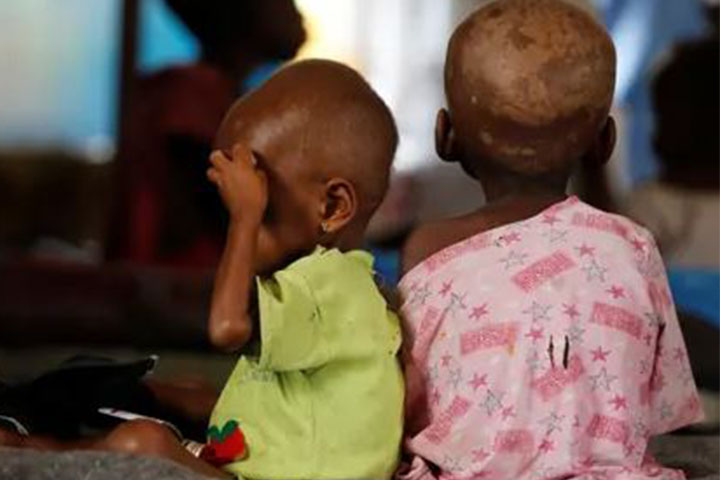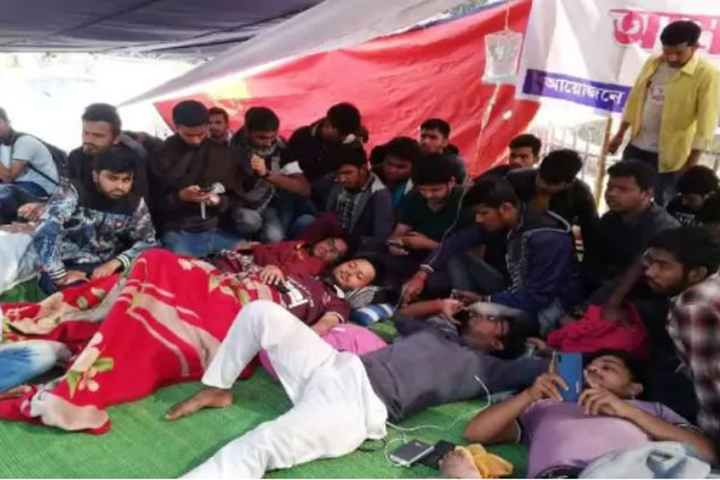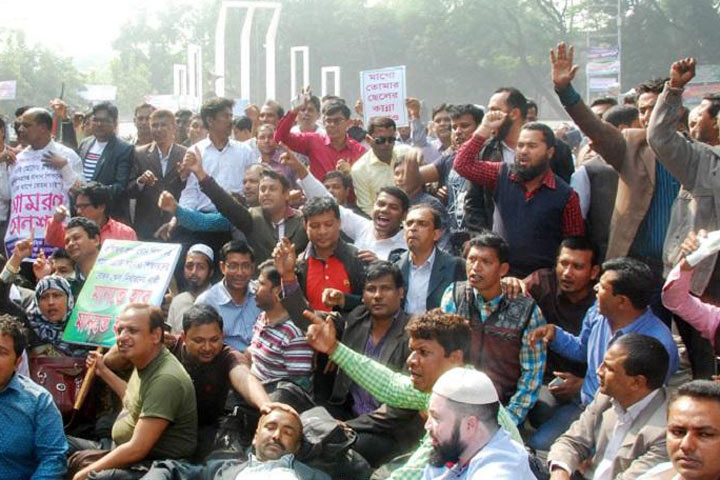Pandemic-driven hunger is making the world more unequal
Worsening inequality, as poorer people and nations lose years of gains in the battle against hunger and poverty, is likely to be one of the lasting legacies of the pandemic. New data released by the United Nations illustrates the unequal impact as measured by access to a basic human necessity.
Global hunger shot up by an estimated 118 million people worldwide in 2020, according to the U.N. Food and Agriculture Organization, jumping to 768 million people — the most going at least as far back as 2006. The number of people living with food insecurity — or those forced to compromise on food quantity or quality — surged by 318 million, to 2.38 billion.
In North America and Europe, formal employment, social safety nets and the widespread availability of remote work cushioned the blow. In those parts of the world, the percentage of people living with food insecurity edged up from 7.7 percent to 8.8 percent. But the developing world, home to billions of informal workers and gaps in government assistance, fared far worse.
Asia and Africa are home to the majority of people in the world who are food insecure. But the region hit hardest by the coronavirus — Latin America and the Caribbean — saw the biggest one-year spike in food insecurity: a jump of nine percentage points, to 40.9 percent. Here and elsewhere in the developing world, a still-chronic shortage of vaccines, as fresh waves of the virus send caseloads soaring, is now projected to worsen access to food this year.
Once a global success story — it capitalized on the commodities boom to halve poverty and malnutrition over the past two decades — the coronavirus-plagued South American nation is now a study in deepening inequality. New national data shows a spike in poverty from 20 percent to 30 percent in just one year, as the poor lost far more of their wealth than the rich.
In the United States, covid-19 is fading, leaving an unexpected economic boon as home values soar and 401(k)s balloon. Yet in large swaths of the developing world, where vaccine distribution grossly lags that in wealthier nations, relentless new surges are rekindling the scourge of hunger.
The pandemic spike in hunger, the largest in at least 20 years, is dealing another setback to a fight that the world was once winning. After years of gains, efforts against food insecurity began running into head winds in the mid-2010s amid economic stagnation, global conflicts and climate change-driven droughts and floods. The pandemic has made the challenge still more difficult.
The jump is not as severe as some officials predicted early last year, largely because the coronavirus had not hit Asia, and to a lesser extent, Africa, as hard as was then feared. But that could change this year as the virus has taken deeper root in both regions.
The coronavirus intensified a hunger crisis last year, but 2021 could be worse.
The world’s worst food crises remain where they have long been: In conflict zones and fragile states from Ethiopia to Haiti. But Latin America — a largely middle-income region with some of the most covid-ravaged nations on Earth — suffered the biggest relative increase in food insecurity, underscoring the power of the pandemic to send nations careening down the ladder of development after decades spent climbing up.
That goal has receded as the pandemic has generated a host of negative indicators, including jumps in maternal mortality at childbirth, HIV deaths and university dropout rates, that are set to reverberate for years.
“Many of the people facing a lack of access to food are the same ones who started having a better quality of life, some, even in the middle class, who’d achieved a good status in life, maybe even a car,” said America Arias, Peru director of the charity Action Against Hunger. “During the pandemic, they lost all their income. It became a question of survival.”
Hunger could be more deadly than coronavirus in poorer countries. “The lesson we’ve learned is that governments need to open their eyes and adjust their thinking in a crisis, and in some cases, like Peru, they just didn’t,” said Torero of the U.N. Food and Agriculture Organization. “They had the money available to deal with the problem. But they imposed restrictions on movement blindly and did not find a way to help the people who needed it. They didn’t realize such a huge number of people would lose everything as a result.”
The government did move to aid the poor, through cash handouts and food distribution — but critics say they failed to reach enough people compared to similar, more successful efforts in neighboring Brazil. None of a dozen residents interviewed in Goshen City said they received any government aid.
Poverty programs here, as in much of Latin America, have traditionally been geared largely toward rural areas, making the pandemic spike in urban poverty now particularly hard to address.
A jump in global food prices — they rose in May at their fastest monthly rate in more than a decade, due to weather issues and surging demand in China — has made it harder to feed her children. At their local market, the prices of cooking oil, corn, flour, chicken and fish have all jumped by double digits since January.
Source: Washington Post/Lucien Chauvin
IK
24 Jul 2021,13:32














 Live Tv
Live Tv





